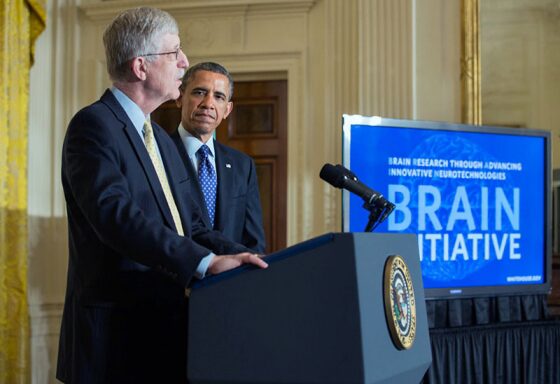
Two researchers from Georgia Tech were invited by the White House to hear the announcement live. Robert E. Guldberg, executive director for the Parker H. Petit Institute for Bioengineering and Bioscience and mechanical engineering professor, along with Craig Forest, an assistant professor in mechanical engineering, stood by to hear President Obama’s pledge.
“To hear the President’s announcement was exciting being that neuroengineering is a major area of strength at Georgia Tech," Guldberg stated. “Along with our state-wide partners, our faculty are well poised to make significant contributions to this new initiative."
The project is modeled after previous scientific grant challenges, such as the Human Genome Project which mapped the human genome. Francis Collins, director, National Institute of Health, called the potential advancements from this research the next “greatest scientific frontier.”
Unlocking the human brain has the potential to impact dozens of diseases including, Parkinson’s disease, eye diseases, mental health, traumatic brain injury, to name just a few. The NIH committed $40 million from their budget to the project and other government agencies, including the National Science Foundation as well as Defense Advanced Research Projects Agency also made commitments. Additional funds will come from foundations and other non-profits.
“BRAIN represents a massive challenge across an interdisciplinary spectrum, for example neuroengineering tool development, neuroscientific interpretation of the deluge of data to arise, and computing challenges in storage and processing,” said Forest who is currently conducting research in this area. “The magnitude of the undertaking by mankind is analogous to the Apollo Space Program or Manhattan Project in its breadth, depth, technical complexity and the need for large teams focused on ‘big science.’”
Forest recently collaborated with MIT to develop a way to automate the process of finding and recording information from individual neurons in the living brain. He was featured on CNN earlier this week for this work.
For More Information, Contact
Megan Graziano McDevitt
Parker H. Petit Institute for Bioengineering & Bioscience
